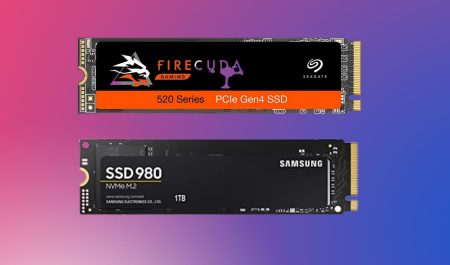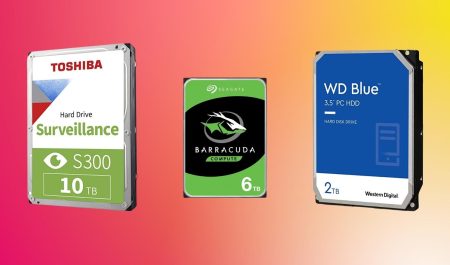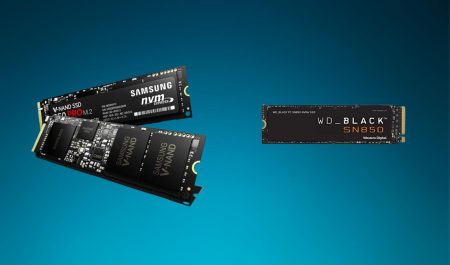NVMe SSDs are specialized forms of SSDs that provide more advanced features than regular SSDs. In this guide, we will go over the Pros and Cons of NVMe SSD for Gaming to help you decide whether the upgrade is worthwhile.
Best NVMe SSD for Gaming
Special Types of SSDs for Gaming:
NVMe SSDs:
NVMe (Non-Volatile Memory Express) SSDs are a newer type of SSD that employs the NVMe protocol in the M.2 architecture for better data transfer speeds. They are specifically built for high-performance tasks such as gaming and editing. They are recognized for having significantly higher read and write speeds, which can increase game performance even further.
M.2 SSDs:
M.2 SSDs are a type of SSD that is designed to be put directly on the motherboard, saving space and improving performance. M.2 SSDs are ranked higher than SATA SSDs (2.5 inches) and provide quicker data transfer speeds because they are directly attached to the motherboard without wires.
Pros of NVMe SSD for Gaming:
Fastest Data Transfer Speeds:
NVMe SSDs use the NVMe protocol, which allows for the fastest data transfer speeds of up to 20Gbps than traditional M.2 SSDs of up to 6Gbps.
Lowest Latency:
NVMe SSDs have the lowest latency of 39s (39 microseconds(s) = 0.039 milliseconds(ms) than regular SSDs, allowing the computer to access and process game data faster. This results in prolonged gaming performance.
Increased Bandwidth:
NVMe SSDs have higher bandwidth than traditional SSDs, which means that they can process more data at once. This is best for large games that require a lot of data to be processed simultaneously.
Future-Proofing:
NVMe SSDs are the latest technology for SSDs and are designed for use with the newest motherboards and high-performance applications such as gaming. This means they are better prepared for the demands of future games and applications.
Cons of NVMe SSD for Gaming:
Limited Compatibility:
NVMe SSDs are not compatible with older motherboards, which limits upgrade options for users.
Higher Cost:
NVMe SSDs tend to be more expensive than traditional SSDs, making them a pricey investment.
Overkill for Some Users:Users who have fast M.2 SSDs, may not require the increased performance and features offered by NVMe SSDs, making it an unnecessary expense.





